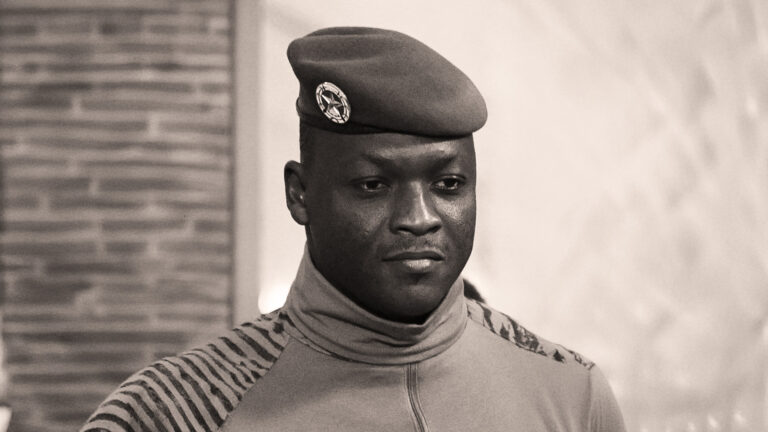Scott R. Swain writes, “Christians praise the triune God because that is how God presents himself to us in the Bible: as one God in three persons, the Father, the Son, and the Holy Spirit.” That is, because the biblical revelation of God is trinitarian, Christians, praise and worship the triune God. In my previous article I started to explore the implications of the doctrine of the Trinity—that is, the fundamental nature of God—for African worldviews, especially their understanding of God as far off and uninterested, indifferent to the human plight. For, as Paul puts it in Romans 12:2, one of the aspects of becoming a Christian is the renewal of your mind. My contention in this series of articles is that that renewal isn’t only theologically necessary but also a liberating and reassuring truth.
God’s true nature is crucial for understanding our own.
God’s true nature is, perhaps unsurprisingly, crucial for understanding our own, along with our world. While recognising the triune God is a matter of doctrine, it is also a powerful aspect of our faithful devotion. Below is the continuation of my reflection on the relevance of the doctrine of the Trinity for the African context, particularly those brought up in traditional African religions.
Much African Theology Isn’t Trinitarian
The doctrine of the Trinity is relevant in Africa because African theology isn’t Trinitarian. Rather, African theology of God is absolutely one and singular. That is, we believe in an eternal God or Supreme Being, who existed before creation. However, the Bible teaches that the one, true God has existed as three persons in eternity: Father, Son, and Holy Spirit. Before there was anything else, this one God existed as three persons. God the Father has always enjoyed fellowship with his Son and the Spirit. Crucially, this biblical teaching about the nature of God demands that Africans change how we think about God upon becoming Christians.
The Bible teaches that the one, true God has existed as three persons in eternity.
We see this need clearly in John Mbiti’s description of God in African Theology. Though he affirms God’s eternal existence he doesn’t even discuss his trinitarian nature. Rather he says the nature of God that makes him distinct from all other beings is that he’s “omniscient, omnipresent, omnipotent,” along with other incommunicable attributes.
God Doesn’t Become a Father at Creation
The above issue is reflected in the way Mbiti speaks about God as Father. His discussion of God’s fatherhood is limited to how God relates to created beings; it doesn’t have the eternal perspective, reflected in scripture. The emphasis is entirely on how people see God, rather than how God reveals himself. So Mbiti writes, “Many visualise God as Father, both in terms of his position as the universal Creator and Provider, and in the sense of his personal availability in time of need,” adding that many also see him as the father not only of “divinities but other spiritual beings.” In short, God’s fatherhood is limited to the ways he relates to his creation. He isn’t an eternal Father, but becomes a father when he creates.
God’s fatherhood isn’t dependent on creation.
However, the Bible shows that God is Father from eternity past, co-existing with the Son before he created. Jesus tells us that he enjoyed a Father-Son relationship with God, before the foundation of the world (John 17:24). Jesus is the Son of God, fully God, and was always with God (John 1:1-3, 14; Hebrew 1:5-13). He is the one through whom all things, both visible and invisible, were created (Colossians 1:15-16). God’s fatherhood isn’t dependent on creation.
God Is Much More Than a Spiritual Being
Now, the same is true when we consider what it means that God is spirit. John Mbiti writes, “Another belief about the nature of God is that he is spirit, invisible and everlasting. For that reason, some people call him simply the Great Spirit, the Fathomless Spirit, the Ever-present Spirit.” Up to this point, Mbiti is consistent with what Jesus said about the nature of God to the Samaritan woman. “God is spirit, and those who worship him must worship him in spirit and in truth” (John 4:23-24).
Africans must reclaim the distinction between God as a mere spiritual being and the person of the Holy Spirit.
Typically, however, African theology doesn’t go further; it considers the nature of God as spirit to mean God is a spiritual being. But there is no concept of God the Holy Spirit, just as there is no concept of God the Son. Commenting on Genesis 1:1-2, Conrad Mbewe corrects this misconception. He writes, “The very first person in the Holy Trinity that is mentioned by name at the very beginning of Holy Scriptures is the Spirit of God.” Starting there, Africans must wrestle with and reclaim the distinction between God as a mere spiritual being and the person of the Holy Spirit.
My contention for this series is that the doctrine of the Trinity is fundamental for Christian faith; so foundational that it’s impossible to rightly understand the first two verses in our scriptures without it.
Know the True God
Without the doctrine of the Trinity we run into all sorts of problems.
Ignoring the nature of God as Father, Son and Spirit is to ignore what God has revealed about himself. Without the doctrine of the Trinity we run into all sorts of problems; worse still, we run away from the true and living God. One can see this in churches across our continent. Worship becomes confused without clarity around the Holy Spirit, when God is reduced to being a merely spiritual force instead of three persons at work. Likewise, when God’s fatherhood is tied to his work of creating, the Son is relegated to creature, placed among the angels. The doctrine of the Trinity is vital for Africa, for her churches. By it we don’t only correctly understand God but learn how to relate to him.














